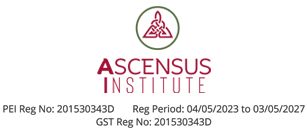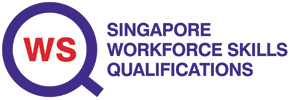Advanced Diploma in Hospitality and Tourism Management
Overview
The course enhances the academic aspects of hospitality and tourism management studies. It is designed to prepare learners (students) with a firm understanding of the issues that affect practice within the industry. Learners (students) will learn to analyse key subject areas and critically evaluate the wide range of management issues within different sectors of the hospitality and tourism industry, which will prepare them for a successful career. It promotes a culture of self-development and reflection throughout the curriculum, fostering a greater sense of personal awareness and confidence necessary to manage others.
In this course, learners (students) will explore the emerging trends and opportunities within niche tourism and its intersection with modern digital marketing strategies, gaining a comprehensive understanding of its significance in the travel and hospitality industry.
Modules
1. Business Entrepreneurship (Core Module)
In an extremely fast evolving business environment of today, executives need to understand the concepts and processes of championing and creating workable ideas to venture into new business either to generate revenue streams or embark into unexplored markets.
This module provides a comprehensive exploration of the key aspects involved in launching and sustaining a successful business venture. Throughout the module, you will develop a strong foundation in understanding business models, essential elements of establishing and running a business, and the importance of sustainability in today's business landscape. You will also gain proficiency in applying financial and accounting analytical tools to assess the viability and sustainability of your business idea.
2. Digital and Social Media Marketing (Core Module)
The way in which businesses conduct their operations and sell their products and services has been revolutionized by digital marketing. With the advancement of digital technologies, the marketing paradigm has undergone a significant shift.
In today's business landscape, companies face the challenge of managing numerous social media channels, adapting to the increasing influence of online customers, and keeping up with the constant influx of new digital technologies.
This module equips learners (students) with the necessary skills to develop digital strategies that align with the demands and preferences of today's consumers.
3. Data Analytics in Hospitality and MICE Management (Core Module)
Data analytics is a rapidly expanding field that explores how to use data to assist businesses in developing systems and processes to enhance productivity, efficiency, and overall effectiveness.
This module delves into business analytics from descriptive, predictive, and prescriptive perspectives. It emphasizes how businesses utilize analytics to identify and address real-world challenges in the hospitality and MICE industries while aiding managerial decision-making.
Learners (students) will be exposed to platforms, tools, and contextual technologies utilized to extract valuable insights from data collections, enabling them to generate meaningful work.
4. Sustainability and Climate Change Management (Core Module)
The governance structures pertaining to environmental sustainability, their operations, and complexities emphasize the need to address sustainability challenges from multiple perspectives and dimensions. This is further reinforced by real-world examples such as waste management, pollution, human consumption, and climate change.
This module delves into the most significant contemporary sustainability issues, considering society, the economy, and the environment from both national and global perspectives.
5. Human Resource Management and Practice (Core Module)
With the rise of behavioural management theory, the importance of understanding the workforce became evident for the success of organizations. Managers realized that the happiness and loyalty levels of their employees could significantly impact their work ethics and overall productivity.
No longer were employees viewed as mere cogs in a complex production process; they emerged as valuable resources capable of collaborating with managers and senior executives to drive organizational growth.
This module provides a comprehensive understanding of individual and group behaviour within organizations. Its primary objective is to examine how people behave in the workplace and the subsequent influence on job structure, performance, communication, and leadership.
6. Niche Tourism – The New Age (Core Module)
"Niche Tourism – The New Age" is a module that explores the emerging trends and opportunities in the field of niche tourism. As traditional mass tourism continues to evolve, niche tourism has gained significant popularity among travellers seeking unique and personalized experiences.
This module delves into various niche tourism segments, including adventure tourism, cultural tourism, eco-tourism, gastronomic tourism, and more.
7. Industrial Attachment (6 months Internship) (Subject to placement availability) (Elective Module)
Industry experience is often an advantage or even crucial when applying for a full-time job. Employers frequently prefer candidates with previous experience in roles that may be similar to the one they are offering. An internship can provide valuable professional growth opportunities and help learners (students) determine whether their chosen career path is suitable while still in school.
An internship, which is a short-term work experience provided by businesses and other organizations, aims to expose individuals, typically learners (students), to a specific industry or profession. Both work and learning are equally important during this period. Ideally, interns should use their time to work on projects relevant to their field, gain knowledge about the industry, establish professional networks, and develop soft skills. In some cases, internships even lead to offers of full-time employment.
In this six-month internship, learners (students) are given the opportunity to acquire skills that can be applied in future careers. Internships can be paid or unpaid.
8. Final Written Project (Alternative to the internship) (Elective Module)
The final written project is similar to a capstone project, which is a physical stone set above a building or wall to signify the successful completion of construction, emphasizing its significance.
It is a notable and well-known final project that comes after successfully completing all the academic requirements of a course. Thus, it is widely regarded as the most significant assessment throughout the course of study.
The final project incorporates prior learning and experience to aid in information gathering and analysis. It synthesizes data into a fresh interpretation that could be useful for the discipline or make a contribution to the profession.
Who Should Attend?
• Company-funded employees who are required to upskill to support the work functions at the workplace.
• Individual who is seeking a course to upskills for a career progression or employability.
• School graduates looking to progress into a higher learning education.
Entry Requirement
• 18 years old
• Attainment of IELTS 6.0 or equivalent, or
• A pass in ASCENSUS INSTITUTE’s English Literacy Test with a minimum grade of 70%.
Normal Entry:
• ASCENSUS INSTITUTE Diploma in Hospitality and Tourism Management (DHTM), or
• Other CPE registered PEIs’ Diploma qualification, or
• Equivalent qualification from a recognised higher learning institution, or
• At least 1 pass for GCE ‘A’ Level, or
• Completion of High School (11th year) qualification or equivalent for International Students
Alternative Entry:
Applicants with the minimum age of 30, who do not possess the above qualifications but have a minimum of 8 years working experience, may be considered for entry into this course.
Evidence of previous employment will need to be provided, together with a reference from the current or recent employer
Graduation Requirement and Award
Obtained a passing mark with “C-” grade in all core modules and successfully completed one of the elective modules. i.e., 6 core modules and 1 elective module.
Duration
Full-time: 6 months
Part-time: 9 months
Industrial Attachment:
• Duration: 6 months
• Alternative to the Industrial Attachment: A final written project to be submitted within 2 months upon receiving of the project outline.
Teacher : Student Ratio - 1 : 40
Possible Progression
Upon successful completion of the course, learners (students) may progress into a degree course, subject to obtaining the approval of the university.
Intakes
Monthly
Fees
Non-refundable Application Fee: S$218 w/GST (S$200 w/o GST)
Course Fee: S$6,976.00 w/GST (S$6,400.00 w/o GST)



